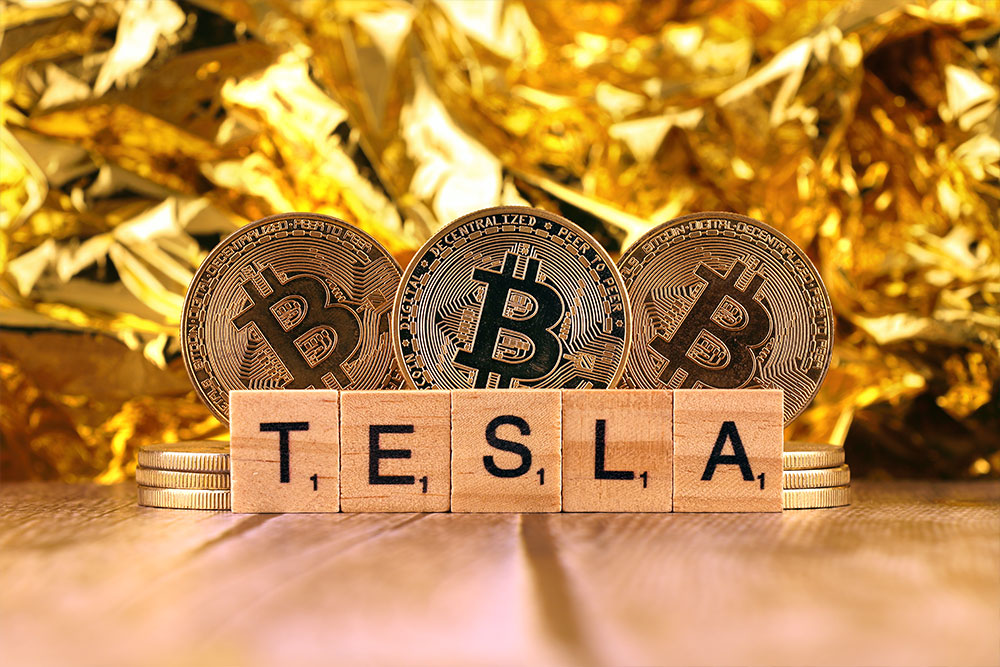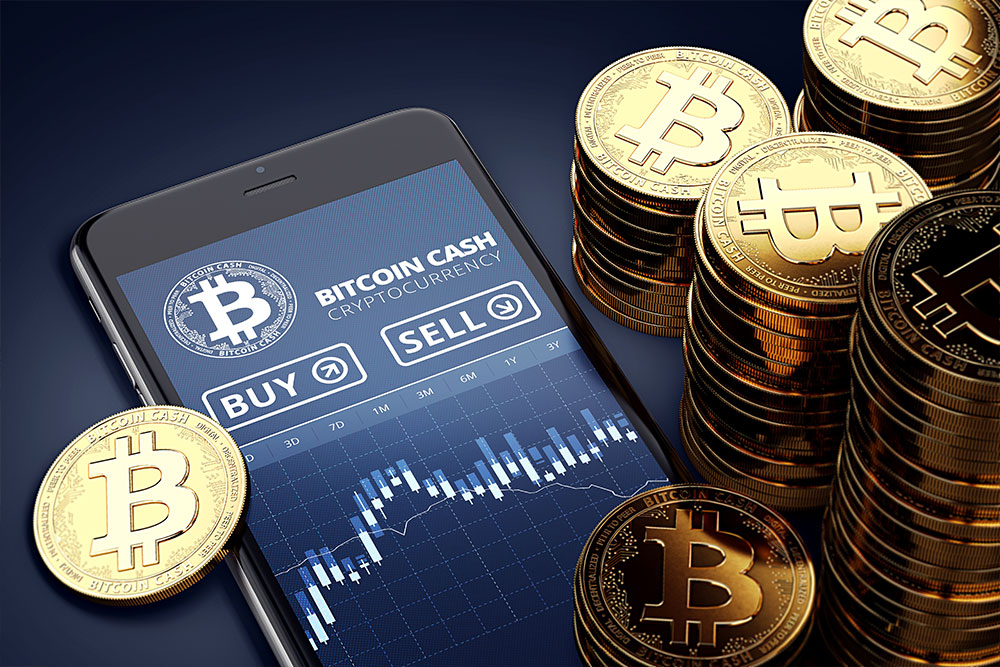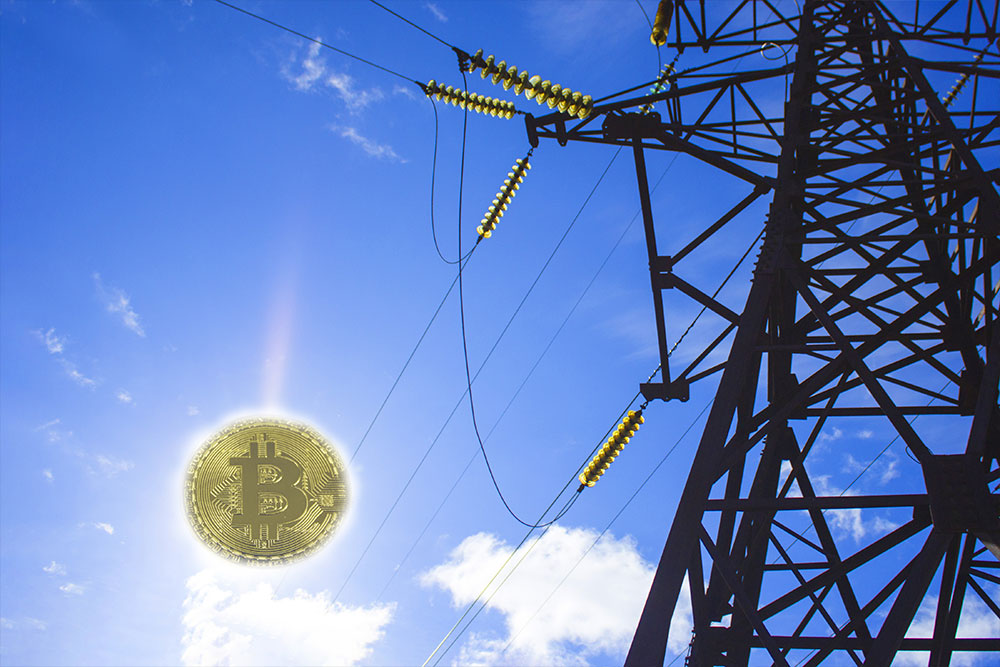While Bitcoin has attracted plenty of attention and intrigue among people since it was launched in 2009, it still remains a covert financial term for many people in India. That said, its surging value has buyers and investors aggressively accumulating more and more of it—a factor that has driven the price growth of the world's largest cryptocurrency towards an all-time high value of $60,000 for the first time on March 12, 2021. According to reports by Bloomberg, bitcoin has tripled in value over the last three months due to increased backing from corporate heavyweights.

In 2021 alone, bitcoin rose around 72 per cent after tech billionaire Elon Musk's electric vehicle company Tesla invested $1.5 billion in it. Although bitcoin can seem like a great investment, it is volatile in nature; all it took was for Elon Musk to point out that cryptocurrencies come at a great cost to the environment, for all the hype and excitement to subside, common sense to prevail and a bit more attention be given to how much energy these crypto coins do consume. It was in March 2021 that Tesla had said they’d accept Bitcoin as a mode of payment for buying their electric cars. No longer is this valid, the reason—the increased energy usage as Bitcoins and cryptocurrencies are mined and transactions are done. Bitcoin is down nearly 15 per cent this week at $49,804.
It is imperative to do your due diligence before you join the crypto-club. It is important that you find authentic platforms to make this investment, and take into account the legal, tax and environmental implications before you start investing. Here's an overview on the basics of Bitcoin – its origins, operations, pros and cons and how to invest in it.
What is Bitcoin?

Bitcoin is cryptocurrency, an electronic version of money that authenticates transactions using cryptography (the science of encoding and decoding information).
• There is no government, financial institution or central authority that owns the decentralised bitcoin system.
• Every bitcoin transaction is recorded in a public distributed ledger called ‘blockchain’ and users can remain anonymous in the network with encrypted keys.
• Initially when bitcoin was introduced, there was no prerequisite for account numbers, names or any other classifying features which connected the purchase to its owners, ie people could buy or sell bitcoins while remaining anonymous. However, in some countries this has changed and now an investor needs to provide personal information to make any transactions.
• Unlike traditional currency, bitcoin is almost counterfeit-proof money.
How it all began
This unconventional independence from central authorities is vital to understanding the history of bitcoin. Bitcoin was launched 11 years ago and was the first established cryptocurrency in the world. It was formalised by an anonymous individual or a group of people who identified themselves as Satoshi Nakamoto (who, till date, remain/s anonymous). In Bitcoin’s 2008 whitepaper Nakamoto states that the goal of bitcoin is to create a new ‘peer-to-peer electronic cash system’ that is completely decentralised with no central authority.
Experts say Bitcoin was created in response to the global recession in 2008 to put power back in the hands of individuals who suffered from the ill-timed decisions of large corporations, banks and central authorities.
Why is it a threat to the planet?

Unlike traditional currency, bitcoins are not printed, and take computing power to be created. These math whizzes/ bitcoin developers call themselves ‘miners’; they solve a mathematical puzzle that creates a new bitcoin, for which, they are incentivised with 12.5 bitcoins – which is a lot of money. According to a financial report by New York Times, currently a new bitcoin gets created every 10 minutes. At the time of inception, Nakamoto decided to put a cap on the number of coins—there can only ever be 21 million bitcoins. The University of Cambridge and the International Energy Agency numbers indicate a significant spike in 2021 for the Bitcoin energy consumption levels. On January 1 last year, the Bitcoin energy consumption index suggests a high of 125.42 TWh, or Terawatt-hour, in power consumption. Simply put, 1 Kilowat (kW) is equal to 1000 Wh, or watt-hour. And 1,000,000,000,000 Wh is equal to 1 TWh. For perspective, Scotland which has a population of around 5 million consumes around 25 TWh of electricity every year. Bitcoin mining and transactions used 5X more. And that’s before things really spiked since the start of the year. The same data suggests that on May 13, 2021, the Bitcoin network consumption pegged at 151.16 TWh with a peak of 519.96 TWh consumption.
What makes bitcoins valuable?
Similar to the currencies of the world, bitcoin’s value is determined by supply and demand. Bitcoin is becoming a popular and easy medium to transfer money without it going through a bank. While finance companies like credit cards, Paytm, PayPal made payment easy and portable, these methods are centralised. The differentiator of bitcoin is that it’s decentralised and cannot be forged. Bitcoin has a limited supply and currently there are only 16 million bitcoins generated out of the 21 million limit. A limited supply with an increasing global demand makes cryptocurrency’s net worth high.
Bitcoin developers believe that its secure supply makes it the perfect way to stock wealth, and it should increase in value significantly over the next few years as more established and institutional investors back it. Experts believe that bitcoin can act as a robust hedge against inflation in portfolios, as well as potentially grow in price and in consumer approval in the future.
Concerns over efficiency and volatility
There are number of cons worth discussing, and they all remain a work in progress as it is decentralised in nature according to former bitcoin developer, Gavin Andresen.
• It is known to be the most unstable currency available. Price fluctuates and changes every day, sometimes at intervals of merely few hours in no less than 10 percent decrease or increase. This results in unstable growth rate and future predictions.
• The algorithm and process is designed to make it difficult to create new bitcoins. This process is intentionally inefficient and requires a lot of computing power and electricity. Because of the rapid scale of the currency, it’s estimated to be using enough energy to power about two million homes.
• Bitcoin is currently too slow for real-time purchases. Transactions and money transfers take several hours to reflect.
Is it legal to buy/sell Bitcoins in India?

It is legal to buy and sell bitcoin in India, but it comes with a lot of negative baggage. In March 2020, the Supreme Court struck down a 2018 order by the Central Bank barring banks from dealing in cryptocurrencies. The court ordered the government to draft a detailed law on the matter, stating all legal and tax implications. According to a news report by Reuters, in India, despite government threats of a ban, transaction volumes are at an all-time high and eight million investors now hold an estimated 100 billion rupees ($1.4 billion) in crypto-investments. Earlier this year, the Reserve Bank of India voiced its concerns citing what it said were perils to financial stability from cryptocurrencies. Finance minister, Nirmala Sitharaman, has clearly stated that there will not be a complete ban on cryptocurrencies or at least the technology part of it. “From our side, we are very clear that we are not shutting all options. We will allow certain windows for people to do experiments on blockchain, bitcoins or cryptocurrency,” she said at a recent Finance conclave.
There’s no denying though, that India’s climate around cryptocurrencies is becoming progressively stringent. Many cryptocurrency services and revolutionary technologies are finding it hard to run without a clear regulation. The Indian government has announced that it is willing to investigate the use of blockchain technology to improve the country’s financial services sector. Currently, there are also no rules, regulations, or guidelines in place to counter any disputes or discrepancies that could arise while dealing with bitcoins. This amplifies the risk factor of cryptocurrency in India. The new legislation will clear the government’s stand on cryptocurrencies.
How can you buy bitcoins in India?
There are two main ways to invest in bitcoin: you can either set up an account with a dedicated cryptocurrency exchange, or you buy it through an investment platform that includes the option to buy cryptocurrencies. In India, you can buy bitcoin from several online exchanges like BuyUCoin, Coinshare and Unocoin (an Indian-based exchange). You can also do person-to-person bitcoin trading using LocalBitcoins that uses escrow protection to keep the transaction secure. An escrow is a financial arrangement where a third party holds and regulates payment of the funds required for two parties involved in a given transaction.While the payment is 'In Escrow' the transaction can be safely carried out without risk of losing money or merchandise due to fraud.
Unlike the United States, Indian exchanges have a stringent KYC (Know Your Customer) requirement in place to avoid illicit usage of such currencies. To register yourself, you have to verify your identity using your government-issued ID proofs and your bank account details. Once you are a registered user, you can purchase bitcoin using digital payment methods. You can add money in INR to your wallet, and use that amount to place an order for bitcoin. In India, you can buy bitcoin with a minimum capital of just ₹100.
How do I ensure that my bitcoin is stored safely?
After buying bitcoins, they are typically stored in bitcoin wallets – offline cold wallets like a USB drive or online wallets like PayPal, which are called hot wallets. Online bitcoin wallets can be hacked, which is why many people prefer to keep at least part of their investment in a cold wallet.
What are the tax implications?
There is still a lack of clarity on the way forward with the new legislations being drafted, however, according to finance experts, India-based investors may soon have to pay taxes on returns earned from bitcoin investments. With their soaring value, 30 per cent tax is levied on income gained on short term investments while selling bitcoin and 20 per cent for long term investments. However, as long as you don't sell the bitcoin, you don't have to pay money simply because its value went up.
PRO TIP: Never invest in something you don’t understand and don’t risk money you’re not willing to lose. Consult a financial advisor before investing in cryptocurrency.